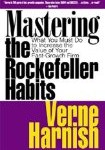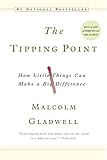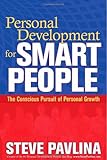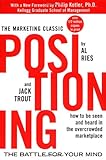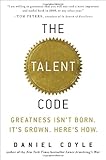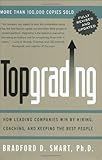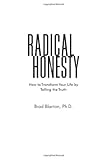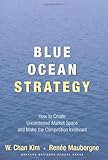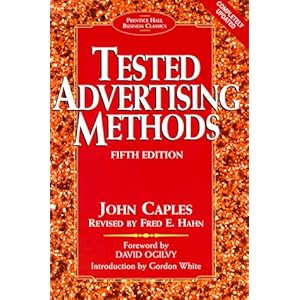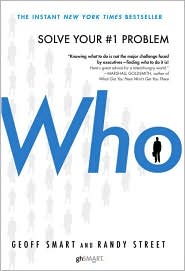57 Meditations on Kicking @$$ in Business and Life"4.8/5 stars" on Amazon
The 20 Best Business Books Of All Time
My brother-in-law Rich recently asked me for my favorite business book. I had a tough time answering because a slew of book titles raced through my mind.
Well, make room on your bookshelf because I dove in and came up with 20 top business books below:
The Best Business Books Of All Time
1) Poor Charlie’s Almanack
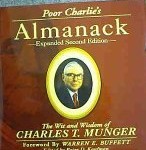
If I had to pick just one business book for folks to read, it would be this illustrated tome by Charlie Munger — Warren Buffett’s long-time right-hand man — with its folksy and entertaining tales of business and life (see Charlie Munger Quotes for a taste).
There’s plenty of Buffett tips in here too so you get two-for-one!
2) How To Win Friends & Influence People
There is a reason that Dale Carnegie’s teachings have been successful for decades — his advice is truly timeless.
This book’s focus is on how to best connect with people…which as you know from my articles on Networking may be the most important skill in business.
3) Mastering The Rockefeller Habits
This under-the-radar book outlines John D. Rockefeller’s approach to business. It may be the best small business book I’ve read as it assists in basics such as how to craft a strategic plan, set priorities and give employee feedback.
It was the inspiration for my article on using the Daily Huddle as part of the meeting process.
4) How To Write, Speak And Think More Effectively
This classic by Rudolf Flesch focuses on the art of communication. It was a key resource for me in my article on tips for writing in “Plain English.”
5) The Magic Of Thinking Big
This book provided me many precious nuggets such as “Action cures fear” — for example, next time you face fear in a situation, ask yourself:
“What action can I take right now to address that fear?”
It also contains some neat confidence building exercises (such as sitting in the front row and walking 25% faster) which I’m big on (see A Simple Way To Increase Your Confidence).
6) The E-Myth Revisited
This book is super-helpful for creating a business from scratch (see How To Build A Successful Business From The Ground Up article I did based on it).
7) Good To Great
I love books based on data…and this is one of them.
Jim Collins wrote a masterpiece here on 11 “Great” (i.e. dominant) companies that he and his team (including my friend Alyson Sinclair!) tracked against their “Good” (think above average) rivals over 15 year periods to see why the “Great” companies dominated.
One of my favorite learnings: 10 of the 11 CEOs from the great companies were hired from within their organization (as opposed to recruited from the outside).
8) Moneyball
This true story of visionary general manager Billy Beane of the Oakland A’s baseball team and how they out-performed most everyone while paying the least amount of money for their players is chalk full of applications for the business world or any organization.
It inspired the Nail The Moneyball article I wrote about two types of undervalued people to look out for in your hirings.
9) The Highest Goal
This book, by Stanford Creativity Course Professor Michael Ray, is perhaps the simplest book I’ve found to help you find the essence/purpose of your life.
There’s an especially neat exercise in it that takes less than an hour and will teach you tons about how to become happier.
10) The Tipping Point
This book explains how an idea, product or business has a magic moment (the “tipping point”) in which it becomes a success. My favorite learning from it was The Connector Exercise.
11) Wooden: A Lifetime Of Observations And Reflections On And Off The Court
It could be argued that John Wooden was the greatest coach AND teacher of the 21st century. This is book of his is my favorite (he has many more) and includes The Eight Steps To Success.
12) Personal Development For Smart People
Steve Pavlina is a deep thinker with an enormous following online: he inspired my How To Be An Early Riser article (he had written one first!).
If I had to recommend just one personal development book, this would be it.
13) Positioning: The Battle for Your Mind
Authors Al Ries and Jack Trout break down the concept of positioning your product. business or yourself in the marketplace; this includes some good tips on how to name things. Check out A Long List of Words in Our Brains That Brands Own and my Personal Branding speech about the topic to the American Association.
As far as marketing books go, this one is tough to beat.
14) The 4-Hour Work Week
A very helpful book on how to design your life through outsourcing work to others. Author Tim Ferriss includes some good exercises on dream goals & budgets as well as some concrete tips on using Web tools to get all this done.
15) Oglivy On Advertising
Advertising superstar David Oglivy outlines how to write good copy — it helped me understand important advertising concepts such as the value of “long copy.”All the pictures of ads make it a fun read.
16) The Power Of Full Engagement
This Tony Schwartz & Jim Loerh book is the most useful resource for how to design your day to be most productive. I wrote about my favorite takeaway here: How To Recharge Yourself.
17) The Talent Code
Author Daniel Coyle visits the talent hotbeds of the world (Brazil for soccer, Moscow for tennis, South Korea for women’s golf, etc.) and breaks down the code for how talent is developed.
Check out 3 Tips To Developing Your Talent piece I wrote about it.
18) Topgrading
My favorite book on hiring because it’s based on data and provides a detailed framework for how to make better hires.
It inspired the piece I wrote about how A Mis-Hire Costs You 13 Times That Person’s Salary.
19) Radical Honesty
This controversial book by psychotherapist Brad Blanton is best summed up by his opening words about his 30 years of assisting patients:
“We all lie like hell…It is the major source of human stress. Lying kills people.”
While I don’t agree with all of Dr. Blanton’s recommendations, I do believe with the core belief that this world would be much better off if practiced honesty at every turn.
20) Blue Ocean Strategy
This book gave me inspiration on attempting to create something new.
It opens with the unusual story of a strange little businesses that shocked Ringling Brothers & the circus business: Cirque de Soleil.
Honorable Mention Best Business Books Of All Time
21) The 7 Habits Of Highly Successful People
These 7 habits — 1) Be Proactive, 2) Begin With The End In Mind, 3) Put First Things First, 4) Think Win-Win, 5) Seek First To Understand, Then To Be Understood, 6) Synergize and 7) Sharpen The Saw) — are basic but essential to succeeding in business.
22) Tested Advertising Methods
One of the best books about how to write advertising copy: author John Caples inspired my article on 10 Easy Tips On How To Write Better Headlines (Warning: Response Rates May Soar 20X)
23) Who: The A-Method for Hiring
Remember Brad Smart’s Topgrading (my favorite book on hiring)? Well, the book Who was written by Brad Smart’s son Deoff Smart along with Randy Street; and it’s an easier read than the academic Topgrading book that Brad’s father wrote.
It inspired my article on The 6 Easy Steps To Hiring An A-Player.
24) The Hard Thing About Hard Things
![The Hard Thing About Hard Things: Building a Business When There Are No Easy Answers by [Ben Horowitz]](https://m.media-amazon.com/images/I/51ZuUYAopiL.jpg)
Great nuggets on entrepreneurship:
- Comparisons between peacetime and wartime CEOs: Peacetime CEO always has a contingency plan. Wartime CEO knows that sometimes you gotta roll a hard six.
- “Most important thing that I learned as an entreprenuer is was to focus on what I needed to get right and stop worrying about all the things I did wrong and might do wrong.”
- Play long enough and you might get lucky. In the technology game, tomorrow looks nothing like today. If you survive long enough to see tomorrow, it may bring you the answer that seems so impossible today.
Final Thoughts On The Best Business Books Of All Time
The books I list are not necessarily the best selling business books out there — but they are all ones I have read and found rewarding.
If you know of other top business books that you think belong in the list, please recommend them by commenting below.
Enjoy!
Disclaimer: I do get paid commissions for your links to Amazon if you end up buying one of these “Best Business Books.” This is typically about 4% of whatever you buy so, for example, if you buy one of the books listed here for $20 I’ll get about $.80. I typically put such income towards the fees it costs me to run RobDKelly.com.


